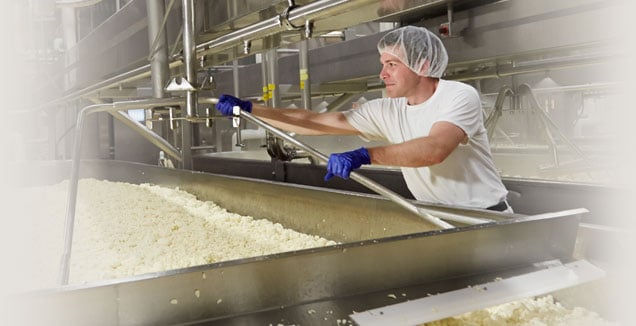Order Cheese for Sale Online Melbourne's Trusted Cheese Makers
Order Cheese for Sale Online Melbourne's Trusted Cheese Makers
Blog Article
An In-Depth Consider Cheese Manufacturing: Components, Methods, and the Future of Artisan Cheeses
The complex process of cheese production is a remarkable merging of art and scientific research, where top notch milk, rennet, and particular microbial cultures offer as fundamental elements. As the industry significantly prioritizes sustainability and openness, the future of artisan cheeses guarantees to reflect both heritage and progress.
Secret Active Ingredients in Cheese Manufacturing
A variety of crucial active ingredients play an essential duty in cheese manufacturing, each contributing to the end product's taste, texture, and character. The main component in cheese is milk, which can originate from various sources, consisting of cows, goats, and lamb - cheese makers melbourne. The type of milk utilized substantially affects celebrity's preference and consistency; for example, cow's milk generally produces creamier cheeses, while goat's milk frequently creates appetizing ranges
An additional crucial active ingredient is rennet, an enzyme made use of to curdle the milk, dividing it into curds and whey. The resource of rennet can be animal, veggie, or microbial, each giving unique attributes to the cheese.
Salt not only enhances the taste but additionally functions as a preservative, preventing the growth of unwanted bacteria. In addition, different flavoring representatives, such as herbs, spices, or also smoked wood, can be contributed to produce distinct artisanal cheeses. With each other, these components form the structure of cheese manufacturing, establishing the phase for diverse and abundant cheese selections.
Conventional Cheese-Making Strategies
Using conventional cheese-making methods, craftsmens around the world maintain time-honored techniques that have been passed down with generations. These methods commonly stress using high-grade, locally sourced milk, which is main to the distinct flavors and textures of artisanal cheeses. The process generally starts with the mindful heating of milk, complied with by the addition of societies and rennet to promote coagulation.
When the curds form, they are reduced, permitting whey to drain pipes, a crucial step that affects moisture material and texture. Salting is an essential aspect of this procedure, enhancing flavor while likewise acting as a preservative.
Aging, or affinage, is another critical part, throughout which cheeses create their characteristic aromas and tastes. Craftsmens may use certain maturing environments, using humidity and temperature controls to improve celebrity's account. The dedication to these standard methods not just supports neighborhood economies but likewise adds to the abundant variety of cheese varieties discovered globally, commemorating social heritage and artisanal workmanship.
Modern Advancements in Cheese Manufacturing
Exactly how have technical developments transformed cheese production in current years? The integration of modern-day technology has actually reinvented both the efficiency and top quality of cheese production.
Additionally, developments in microbiology have actually made it possible for cheesemakers to select details microbial societies and enzymes, enhancing flavor accounts and boosting service life. Making use of sensor innovation for monitoring fermentation problems has additionally become common, permitting real-time modifications to keep optimal settings for cheese aging.

These advancements not only improve the quality and sustainability of cheese manufacturing however also encourage artisan manufacturers to keep standard tastes while embracing modern-day performance. As innovation remains to progress, the future of cheese production looks appealing, mixing practice with advancement.
The Role of Terroir in Cheese
In the realm of cheese production, terroir plays an essential function in specifying the distinctive qualities of numerous cheeses. Terroir, a French term typically connected with a glass of wine, encompasses the ecological variables that influence agricultural products, consisting of dirt structure, environment, and regional vegetation and animals. In cheese-making, the one-of-a-kind qualities of the area where the milk is sourced can convey particular flavors and appearances to the final item.
For circumstances, the grazing conditions of dairy animals considerably impact the milk's structure, affected by the sorts of grasses and herbs readily available in a specific location. This differs not only in between countries but also in between regions within the same country. Furthermore, the microbial areas existing in the atmosphere add to the fermentation procedures, leading to diverse profiles in flavor and fragrance.
Cheeses such as Roquefort, Parmigiano-Reggiano, and Cheddar exemplify how terroir can shape their identifications, making them distinct and commonly secured by geographical indicators. As manufacturers increasingly recognize the significance of terroir, there is an expanding emphasis on sourcing local components and keeping conventional practices, making certain that each cheese absolutely shows its origin.

Future Fads in Artisan Cheeses
A notable change is occurring in the artisan cheese industry, driven by evolving customer preferences and technological improvements. Increasingly, consumers are inclining distinct, high-quality items that highlight both sustainability and local sourcing - cheese makers melbourne. This trend is triggering artisan cheesemakers to innovate, concentrating on small-batch production and the use of conventional techniques while integrating modern innovation to enhance high quality and safety and security
Furthermore, there is an expanding rate of interest in plant-based and different milk products, pushing conventional cheesemakers to check out brand-new avenues, such as cashew or almond-based cheeses. see this website This change not just satisfies nutritional constraints however additionally straightens with environmental problems concerning animal farming.
In addition, transparency in sourcing and production processes is becoming paramount. Customers are much more informed you could try this out and need traceability, prompting manufacturers to embrace more clear labeling practices and participate in narration that highlights their approaches and values.
Conclusion
In final thought, the intricate procedure of cheese manufacturing fuses conventional strategies with modern innovations, leading to a varied selection of tastes and appearances. The focus on high-grade ingredients and the influence of terroir underscore the creativity associated with cheese production. As the market advances, an emphasis on sustainability and openness will likely form the future of artisan cheeses, catering to a progressively discerning customer base that values authenticity right here and workmanship in dairy items.
Report this page